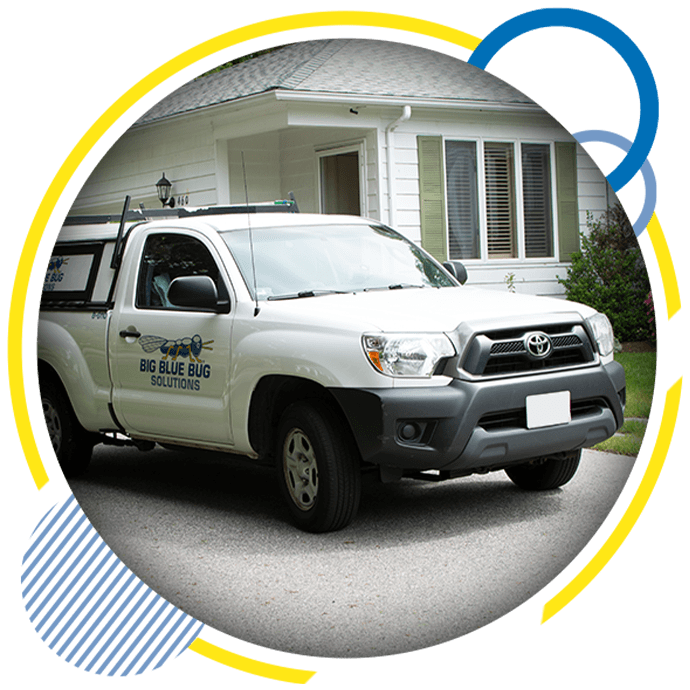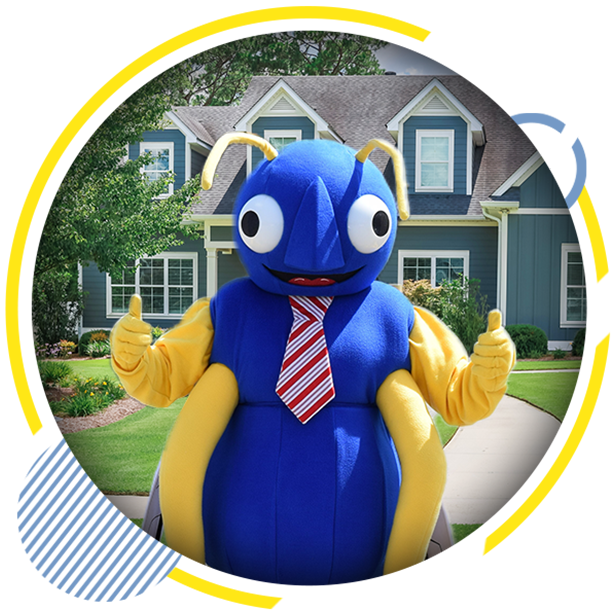
Are You Having A Hard Time Dealing With Voles In Southern Maine?
When you notice a mouse running along the exterior of your home, it can make your blood run cold, if you know even a little bit about house mice. But what if that isn't a mouse? What if it is a vole? While both are small rodents, a vole isn't going to invade your home and eat your pantry food. It won't damage your home, chew on the wires in your wall voids, or spread ticks to every level of your home. Those are the disturbing things house mice do. Voles are backyard rodents. But, while not inclined to enter your home and create the myriad of issues house mice create, they aren't exactly harmless critters. Join us today as we look at how to tell the difference between a vole and a house mouse, the unique problems voles create in your yard, and the best way to control voles in Southern Maine. If you already know the problems voles cause in your yard (because they're causing them) and you want a fast and effective solution, jump to our contact page for professional vole pest control in Southern Maine. While we aim to provide fun and informative pest control articles, you don't have to read an article about vole control to stop these mouse-like pests from wreaking havoc in your yard.
How To Identify Voles
A vole looks like a fat mouse, but there are several visual differences between these two kinds of rodents that make voles distinctly un-mouselike. Mice are known for their large, perky, pale-colored ears. The ears of a vole are small, hairy, and blend in against the sides of its head. A house mouse has dirty brown-colored hair and a white underbelly. The hairy coat of a vole is a darker brown and much thicker. While its underbelly is slightly gray, it is hard to notice. Mice are sleek. Voles are chubby. At a distance, you may think a vole is a fat mouse because of its chubby body, round snout, and long tail.
Along with visual characteristics, you can distinguish voles by their behavior. Many vole species are active day and night. Mice are almost exclusively nightwalkers. If you see a mouse-like critter scampering around in your yard during the day, it is more likely a vole. You can also tell by the damage voles cause in your yard. That brings us to our next point.
The Problems Voles Can Create On Your Property
There are many ways voles cause trouble. They commonly gird trees and strip the bark. When you start to see bald spots at the base of your trees, you won't have to wonder if you have house mice or voles. Your problem is definitely voles.
Voles eat a variety of plants. Their plant of choice is turfgrass. They can mow through a yard and create long runways that are about the width of a golf ball. If you stand on your balcony or deck, look down, and notice wiggly lines of dirt or dead grass in your yard, it is time to get vole control. House mice don't eat your grass.
Voles dine on vegetables. Unfortunately, they aren't the only woodland pests that enter South Portland yards and eat vegetables in our gardens. So, finding damage to your garden plants will provide you with only some evidence that you have a vole problem. But voles have a somewhat unique way they attack garden plants. They suck them right down into the ground. If you notice that one of your vegetable sprouts is gone and a hole has appeared, it is likely you have a vole problem.
The most noticeable and recognizable damage voles cause are holes in your lawn. If your yard starts looking like swiss cheese, voles are to blame. The holes become more noticeable over time because the grass around them will start to become dry and brown, or you'll see areas of barren ground. Patches of dry earth occur over time as voles excavate dirt, spread it around, and smother the turfgrass around the holes.
The longer you wait to get vole control for your property, the faster your problems will increase. Vole females typically have ten babies per month. It takes about 45 days for them to reach sexual maturity, and the babies start to create babies of their own. Do you see how quickly a vole population can explode in your yard? All they need to thrive is ground cover and many Southern Maine yards have ground cover in abundance.
Natural Ways To Prevent Voles On Your Property
It is sometimes easy to deter voles or to correct a vole problem. Experts estimate that 90 percent of vole offspring don't make it one year. They have a surprisingly low survival rate. One reason for this is that there are many animals that prey upon voles. Unfortunately, they counteract this with their ability to breed prolifically. Your goal is to reduce favorable conditions. If you do, you may drive voles away to search for another location where they may survive.
Tip 1: Yard Work
You can reduce vole populations in your yard by addressing key habitat needs.
- Keep your grass trimmed low to reduce this food source and to reduce cover. There are many predators that eat voles and voles do not want to hang out in areas that have little or no cover.
- Another way to decrease the density of your ground cover is to address lawn weeds. The fewer weed plants in your yard or garden, the better.
- Trim the base of shrubs and bushes to get vegetation up off the ground.
- Remove brush piles by storing dead branches in a bin.
- Create 3-foot areas of bare dirt around your trees to deter voles from feeding on the grass near the bark.
- Establish a bare patch of ground that is about eight feet wide between your lawn and wooded areas where voles are entering your yard.
Tip 2: Remove Bird Feeders And Limit Seeding
Voles are primarily granivores. That is a fancy term that means these little rodent pests eat grains. Birdseed contains grain. When grain falls to the ground underneath your feeders, it provides a delectable food source for voles—and also house mice.
Voles will eat the grass seed broadcast in your yard. It is essential to realize that this is a food source and to make sure you're not scattering seeds only to feed the voles. The presence of seeds in your yard will help voles find a food source to help them get through the winter, so seed your yard in the spring rather than in the fall. It is best to do this anyway as you want to cast seed just before the time of year when seeds germinate, and everything in Southern Maine is coming back to life. That makes sense, right?
Tip 3: Install Tree Guards
A tree guard prevents voles from feeding on the bark at the base of your trees. It is specially designed for this purpose. In Maine, it is important to ensure the tops of your guards are above the snow line. Insert the bottom of the guards below the soil and create a soil ridge around the base.
These are all-natural methods to deter voles and prevent habitation. If voles have moved into your yard and are growing a population, trapping is a requirement. We don't recommend doing this yourself as you can get unwanted results, such as harming the voles unnecessarily or allowing them to continue to infest your property and present problems.
Tip 4: Protect Your Garden With A Barrier
If you have a garden, you know the value of installing a fence. For added protection that will help keep voles out, install hardware cloth at the bottom. Insert the hardware cloth at least a foot into the ground to keep voles from tunneling under.
The Trick To Getting Rid Of Voles
If you're currently dealing with a vole problem, it is best to contact a wildlife management company. The tips we provided above will work to deter voles, and they have the potential to arrest an existing problem, but it is a lot of work and you may find yourself turning to pest control products for an easy solution. Unfortunately, this easy solution often turns into a big headache. There are many ways traps can fail and some control products, such as bait, can have unwanted results. Bait can harm non-targeted wildlife in your yard. Professionals have the training and experience to track down voles, apply vole control products, and evaluate the success of vole treatment programs.
Are you in Southern Maine? If so, contact Big Blue Bug Solutions for vole pest control. Don't let the name fool you. We employ highly trained wildlife management professionals that are experienced in addressing wildlife infestations and lawn pests. We can inspect your property, evaluate the conditions inspiring your vole problem, and offer a solution. Navigate to our contact page for assistance. We're here to help.


chECK oUT THE bUZZ!
Unbeatable Pest Control, Unmatched Reviews
-
"They have exceeded expectations. Highly recommend."Alley Bergemann, called before arriving on the day of the appointment, showed up on time, and took care of re-baiting the bait traps as needed. She is patient, polite and answered a few questions I had, all with a pleasant demeanor.- Jonathan P.
-
"Always been amazed by the competence and professionalism of this company."
Their man, Elijah was a gentleman and very knowledgeable professional. He took the time to carefully listen to me when I explained where the ant infestation was found. He explained clearly what he was going to do to address the issue.
- Pete M. -
"GREAT company!"The Big Blue Bug Solutions is a GREAT company with very helpful, courteous technicians. This a company that actually helps you with your problems and not try to sell you something you don't need. I am very pleased, and NO, I have no relatives that work at- Robert M.
-
"Knowledgeable, accurate and incredibly pleasant."I just cannot believe the most amazing experience customer service experience I had with Laura who could not have been more knowledgeable, accurate and incredibly pleasant. It is very rare I leave a review but this encounter deserved one!- Kimberly H.
-
"Always very polite and accommodating."We’ve been using Big Blue Bug for pest control for many years and have been very satisfied! Vince visited today for our regular check in and he is an excellent technician. Thanks, BBB!- Stacey C.
-
"Knowledgeable, respectful, courteous!"
I highly recommend Big Blue Bug Solutions - first - for their customer service. They are professional and efficient and always try to fit me in at a time that is convenient for me. Second, RODNEY IS THE BEST TECHNICIAN!!!!
- Meredith L. -
"Our first service was a great experience!"Peter called to let us know he was on his way and arrived as scheduled. He was very knowledgeable and setup a comprehensive array of traps in each target area to begin capturing the pests and put an end to our troubles.- Mike H.
-
"Personable, friendly, and knowledgeable!"Shoutout to our tech, Jeremy Cote, who has been servicing our bakery in Richmond and has helped us maintain a pest free environment. He is personable, friendly, and knowledgeable. We highly recommend big blue bug to friends, family, and customers!- Becky M.


WE'RE AVAILABLE
EVERY DAY, ALL DAY,
365 DAYS A YEAR
Say goodbye to automated systems! Our team is at your service round the clock, every single day of the year, guaranteeing a personalized and immediate response to your queries.
